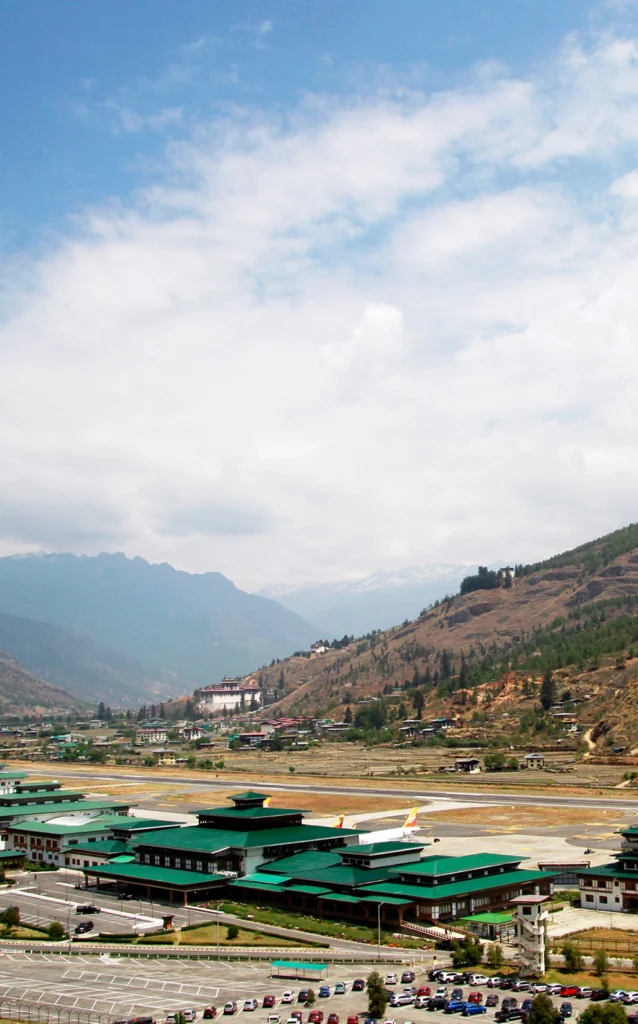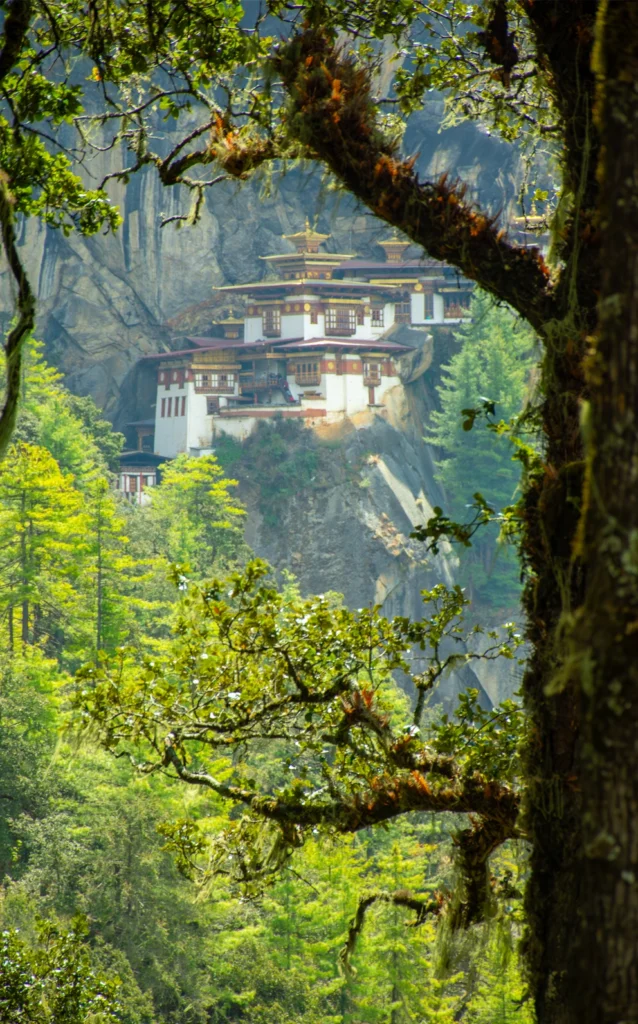Let's Go to Bhutan
View our Itinerary Here








Frequently Asked Questions
About
BHUTAN
Bhutan is a linguistically diverse country with a variety of languages spoken across different regions. While Dzongkha serves as the national language and is widely spoken, there are several other languages used by various ethnic groups. English is also commonly used, especially in education and official communication.
Kuzuzangpo-la – Hello
Kadrinchhey-la – Thank You.
Na gi tshen gachi mo? – What is your name?
Nge gi ming ……..ein. – My name is ……..
Chhoe gatey ley mo? – Where are you from?
Chhoe Chhey bay sem ga yi – It was nice meeting you.
Log Jaygay mey – Goodbye (means meet again).
Ani gachi mo? – What is this?
Ani Gadem Chi Mo? – How much is this?
Gong bom mey. That’s too much.
Aatshi phab nang. Give me discount.
Nga nau mey – I am sick
Chhabsa gatey mo? — Where is the toilet?
Mankhag gatey mo? –Where is hospital?
Chhu – Water
Chhu tshe – Hot water
Ngaa Ja – Milk Tea
Suja – Butter Tea.
Chang – Alcohol
Planning
YOUR TRIP
The SDF is collected by the national exchequer and funds are allocated to various projects that create long-term, sustainable opportunities for the Bhutanese people, through free healthcare, education and training, upskilling the tourism and hospitality industry, improved infrastructure, environmental preservation and conservation, cultural preservation programmes and initiatives that support local businesses and economies. The SDF is also a vital means of maintaining the exceptional forest cover and carbon-neutrality for which our small nation is world-renowned and globally critical. The SDF also helps us to ensure that we can continue to offer guests tranquillity and an intimate experience.
Our team will handle your visa arrangements for Bhutan, with the visa cost already covered in your tour package.
As part of the visa application process, you will be required to pay the Sustainable Development Fee (SDF) of US$100 per day (per adult; concessionary rates apply for children).
A non-refundable, one-off visa application fee of US$40 is also payable
The SDF for Indian nationals (showing a valid Indian passport or Voter ID card) is Nu. 1,200 (or the equivalent amount in Indian rupees) per person, per night. Children aged between 6 years and who have not yet turned 12 are eligible to pay Nu./INR 600 per night. Children who have not yet turned 6 years old do not have to pay any SDF.
There are also domestic airports in Yonphula in eastern Bhutan, Bumthang in central Bhutan, and Gelephu in south-central Bhutan.
The Impact Hub Thimphu team will greet you at the airport and accompany you to your designated hotel.
The tour operators in Bhutan would also be able to provide you with good on the ground knowledge about the highlights of each regional district (Dzongkhag).
During
YOUR TRIP
Bhutan’s currency is called ngultrum. It’s 1:1 with Indian rupees.
When it comes to money exchange, it’s important to note that Bhutan operates primarily on cash. You’ll need the local currency, ngultrum, for various expenses such as drinks, souvenirs, and optional activities.
Using ATM cards or credit cards isn’t always reliable in Bhutan, so it’s advisable to bring additional cash, preferably in USD, and exchange it at the airport upon arrival. Keep in mind that finding ATMs or currency exchange services can be challenging, so having local currency from the start is advantageous.
Additionally, remember that Bhutanese currency holds no value outside of Bhutan. Therefore, it’s wise to exchange any excess Bhutanese currency back to your preferred currency before departing the country.
ATM and banks accept Visa and Mastercard. International credit cards are widely used in urban areas of Bhutan. However this service may not be available in other parts of the country. Visitors can download the digital wallet app goBoB launched by the Bank of Bhutan, which can be used with a local SIM card and is widely accepted throughout the country. Another option is the MyPay digtal wallet app launched by Bhutan National Bank. Both apps can be connected to international credit cards and used widely.
Cash in US dollars and Indian rupees is also widely accepted. We advise bringing some cash in either of these currencies, or in Bhutanese ngultrum.
There are plenty of places to shop for special objects, from high-end pieces to small mementos. Many visitors enjoy shopping at the Cottage and Small Industries (CSI) Market and the Centenary Farmers’ Market. The Textile Museum shop has a wonderful selection of artisan-made textiles and homewares, as do the nearby Tarayana and Craft galleries. Our OGOP shops are also excellent places to find food, drink and handcrafted products sourced directly from the country’s artisans and farmers.
In urgent situations, we suggest contacting us at +975 77312694, or reaching out to the protocol officer, the driver, or our Founders Retreat team. Alternatively, you can leave a message in the group chat.
We recommend packing light as you’ll be carrying your own luggage. Try to keep your bags between 10-15kg/22-30 lbs. Most travelers use a rolling bag or small backpack. Don’t forget a daypack for water, cameras, and electronics.
Packing List:
Cold Weather:
– Long-sleeved shirts or sweater
– Scarf
– Warm gloves
– Warm hat
– Warm layers
Conservative Wear:
– Modest clothing covering knees and shoulders (long pants, long skirts, shirts covering shoulders)
– Shawl or scarf for temple visits
Documents:
– Flight info (printed)
– Insurance info (with photocopies)
– Passport (with photocopies)
– Required visas (with photocopies)
– pre-departure info
Essentials:
– Binoculars (optional)
– Camera (with extra memory cards and batteries)
– Cash, credit and debit cards
– Day pack
– Ear plugs
– First-aid kit
– Flashlight/torch
– Fleece top/sweater
– Footwear
– Hat
– Locks for bags
– Long pants
– Money belt
– Outlet adapter
– Personal entertainment (reading and writing materials etc)
– Reusable water bottle
– Shirts/t-shirts
– Sleepwear
– Small travel towel
– Sunglasses
– Toiletries
– Watch
– Waterproof backpack cover
– Windproof rain jacket
Light Hiking:
– Hiking boots/sturdy walking shoes
– Hiking pants (convertible/quick dry)
Smart Dress:
– Outfit for evenings out
Warm Weather:
– Sandals/flip-flops
– Shorts/skirts (longer ones are recommended)
– Sun hat/bandana
Note: In colder months (Oct-Apr), mountains can be very cold, so pack accordingly.
Laundry
Some of our hotels provide country facilities at an extra cost. There may be occasions when you may choose or need to do your laundry, and we recommend using environmentally friendly, biodegradable soap